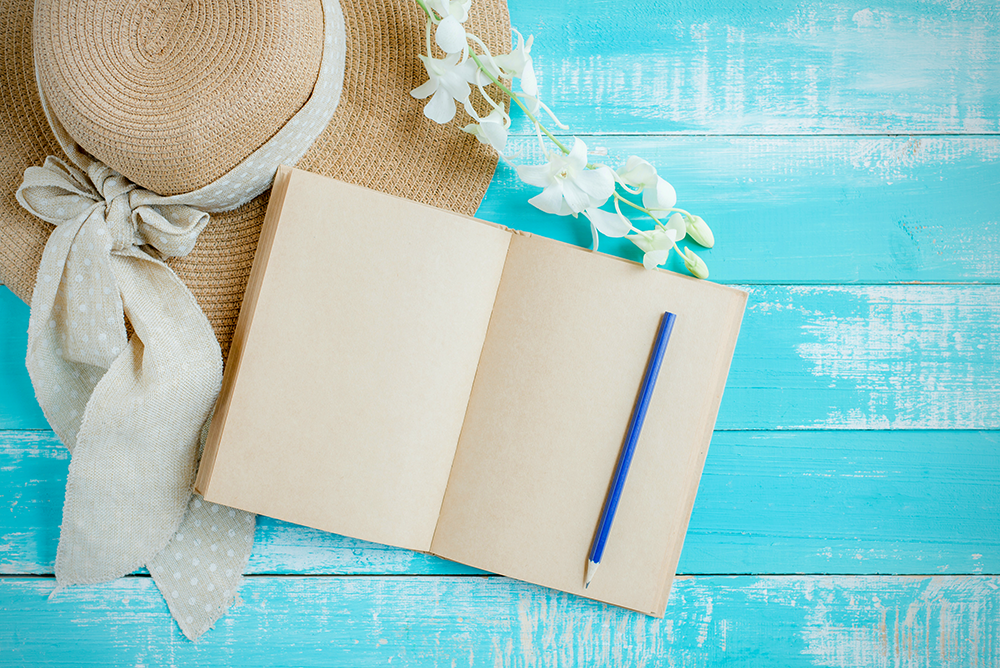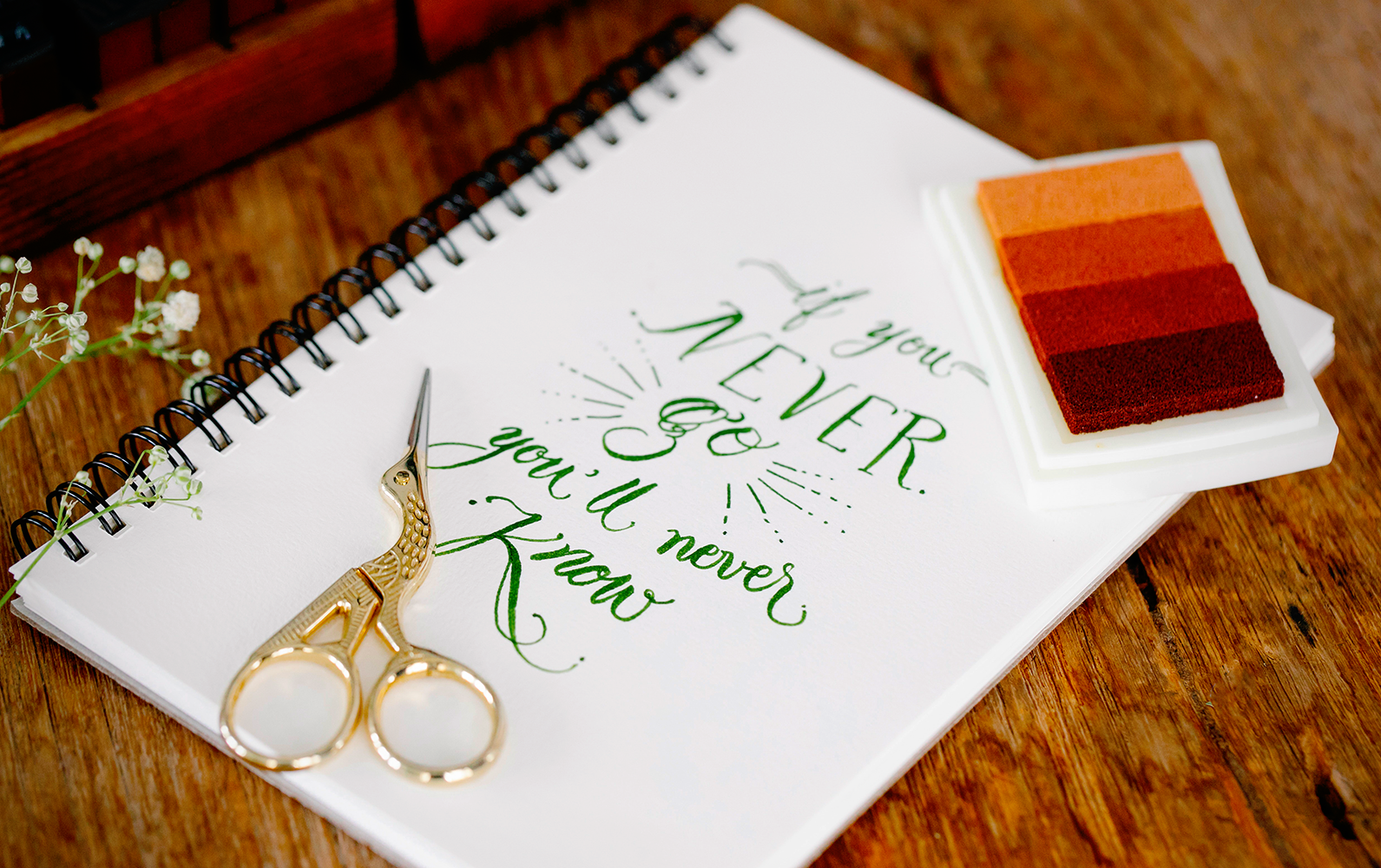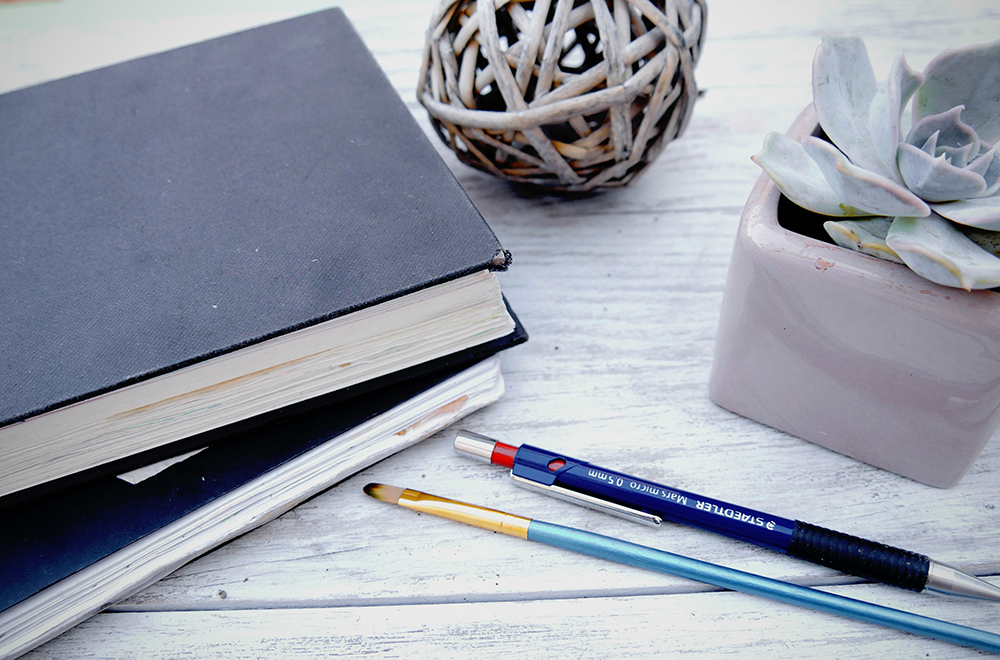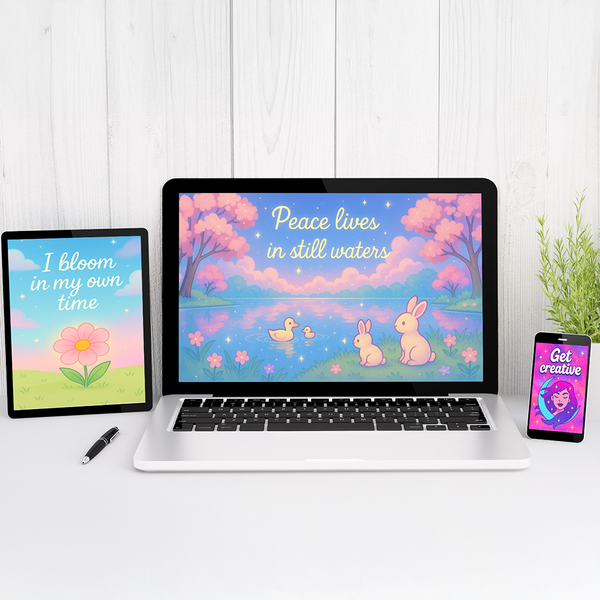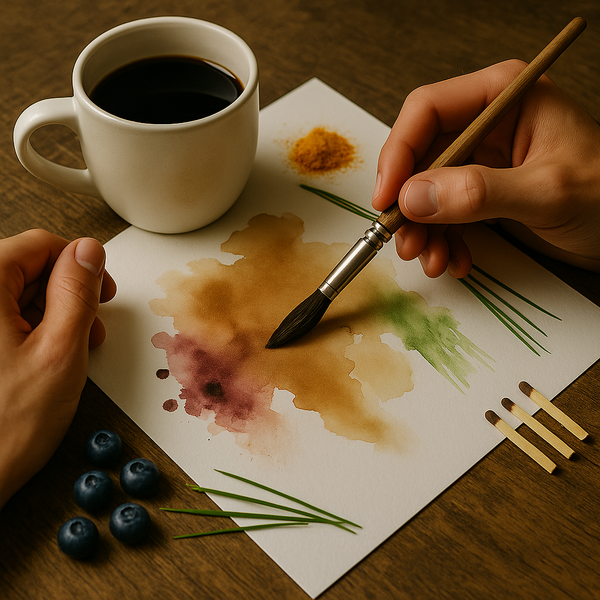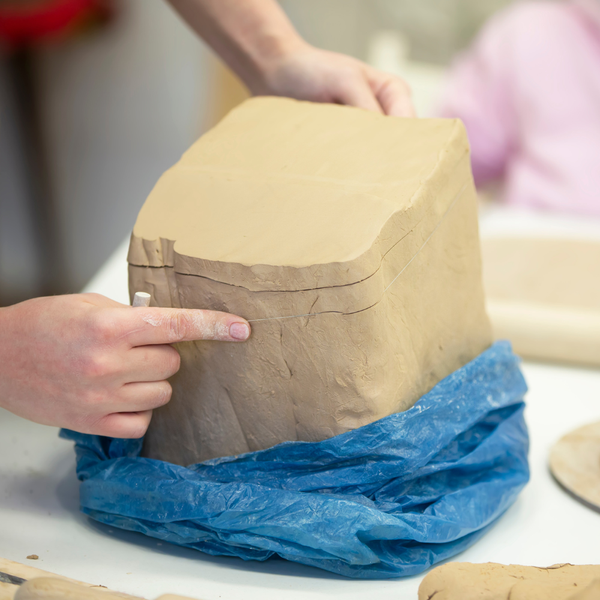Do you find yourself constantly surrounded by art supplies and blank pages, but too afraid to put pencil to paper?
Are you yearning to document your daily life but don't know how?
Ever since you were a kid with scribbled pages full of your wildest adventures, you've always loved the idea of keeping a journal.
But between the daily chaos of work, family, and life responsibilities, carving out time to journal has been harder than you thought.
Where do you even start? What do you write about? How do you make it a regular habit?
Well fret no more, my creative friends, because we're diving deep into the refreshing world of journaling for beginners!
Journaling is the perfect solution for any creative soul looking to express themselves through words and creativity.
Discover fun and unique ways to journal whether you've got 2 minutes or 20.
From colorful spreads to morning pages, stream of consciousness writing to gratitude lists, we're about to unlock the secrets of how to journal for beginners and provide you plenty of inspiration and practical tips to kickstart your personal chronicles.
By the end of this post, your next journal will be bursting at the seams with all your thoughts, feelings, goals, dreams and daily happenings.
Get ready to dive into creative ways to fill those blank pages and make journaling a fulfilling daily or weekly practice!
So, grab your favorite pen, cozy up with your journal, and get ready for your newest creative outlet—your own special way of documenting memories, reflections, and everything in between!
It’s time to unleash your inner wordsmith and get journaling like the pros; let’s do this!
Key Takeaways:
- Understand the basics of starting a journal, including choosing the right journal and establishing a writing routine.
- Learn various journaling techniques and prompts to enhance your journaling experience.
- Discover the benefits of journaling for mental health and overall well-being.

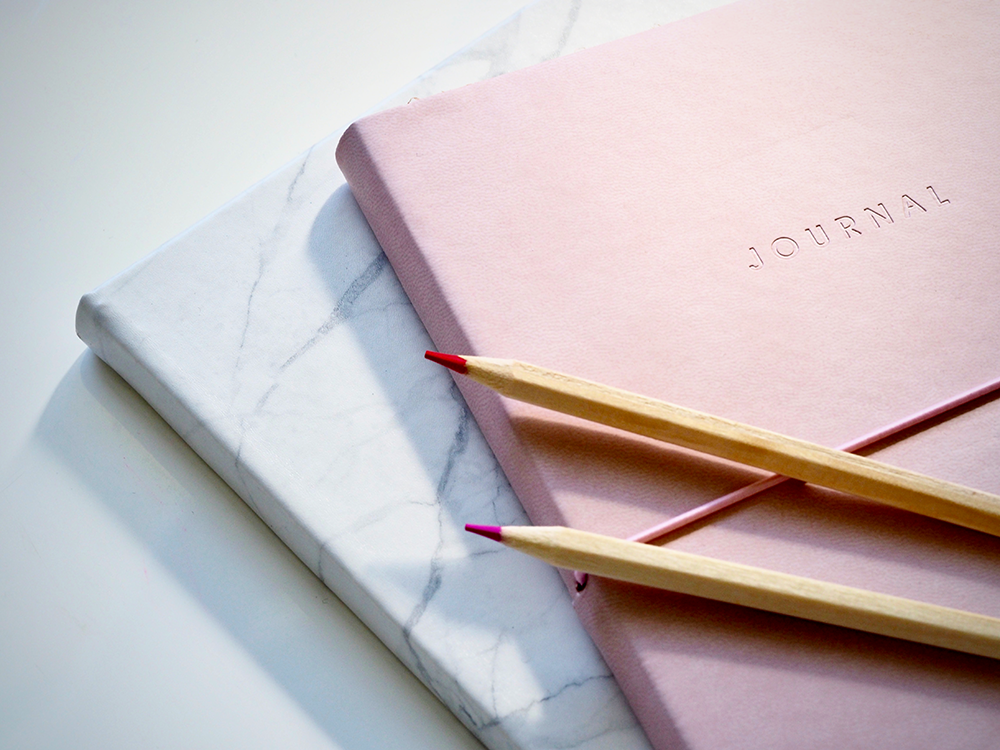
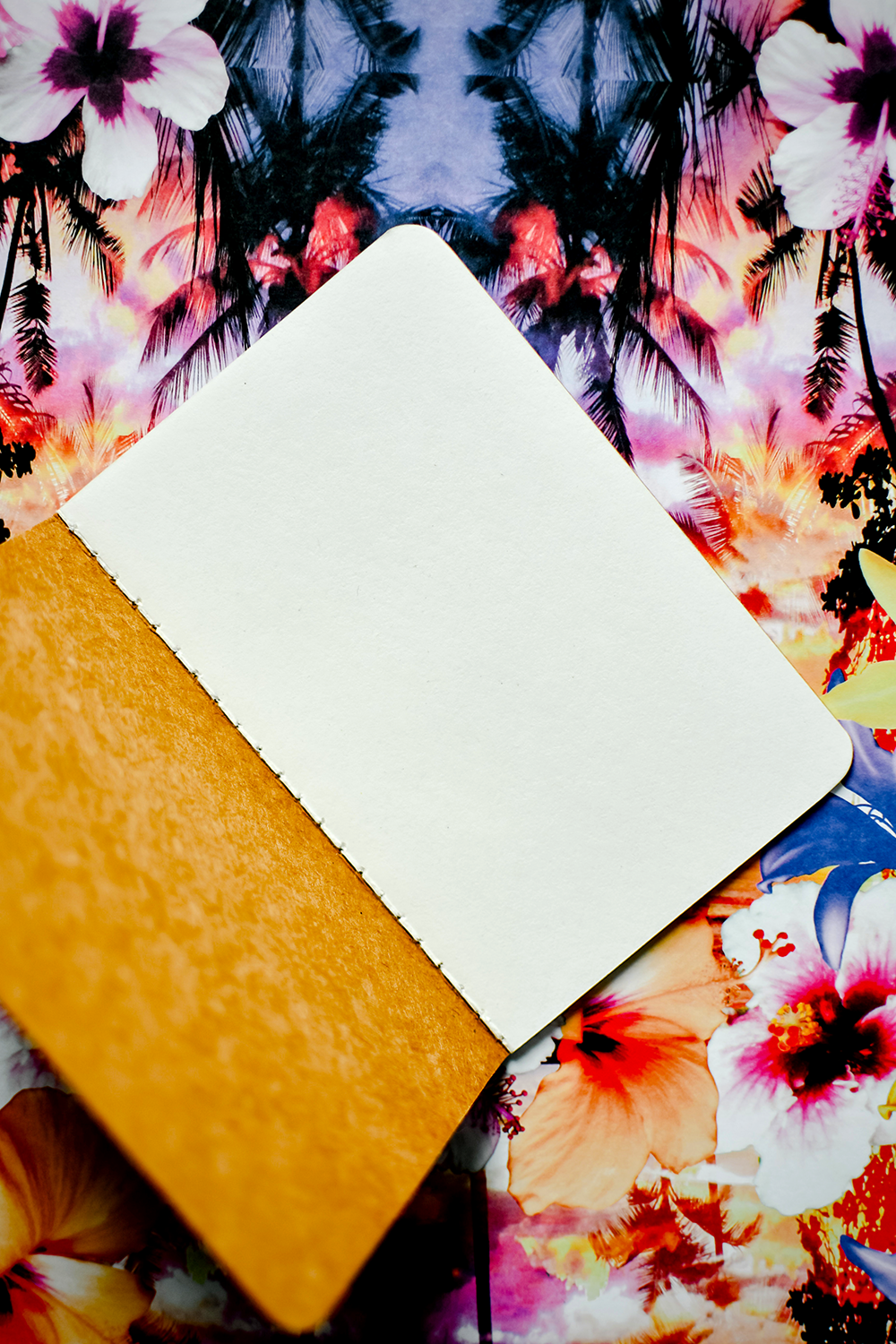
Journaling Basics
Journaling is a powerful tool for self-discovery, personal growth, and maintaining mental and physical health.
It allows you to reflect on your thoughts and emotions, set goals, and track progress.
If you're new to this practice, you might wonder how to start a journal and make it a part of your daily life.
Journaling can seem intimidating at first, but with these simple tips and tricks, you'll be on your way to a fulfilling journaling experience in no time.
Choosing Your Journal: Digital or Physical?
The perfect journal for you is one that speaks to your heart.
It could be a simple lined notebook or a beautifully designed planner with prompts and inspirational quotes.
When you begin journaling, one of the first decisions you'll face is whether to use a digital journal or a paper journal.
Both have their advantages.
A physical journal offers a tangible experience where the act of writing can be therapeutic.
On the other hand, a digital journal is portable and often comes with features like password protection, providing a safe and private space for your thoughts.
Whichever option suits your needs and preferences, remember that the most important thing is to have a space where you feel comfortable expressing yourself.
Establishing a Writing Routine
To develop a regular journaling habit, it's essential to establish a writing routine.
Decide on a specific time of day, whether it's during your morning coffee or on your lunch break, and commit to writing daily.
Consistency is key, and even a few minutes each day can lead to significant benefits.
You can also set reminders or use journaling prompts to help get you started.
Overcoming the Blank Page
The blank page can be intimidating for beginners.
To overcome this, start with simple journal prompts or write about your day.
Remember, there's no right or wrong way to journal.
The important thing is to start writing and let the words flow.
You can also try different writing techniques, such as stream of consciousness or timed writing, to get your creativity flowing.
There is no "right" or "wrong" way to journal, so let your creativity flow and don't be afraid to experiment with different techniques and styles.

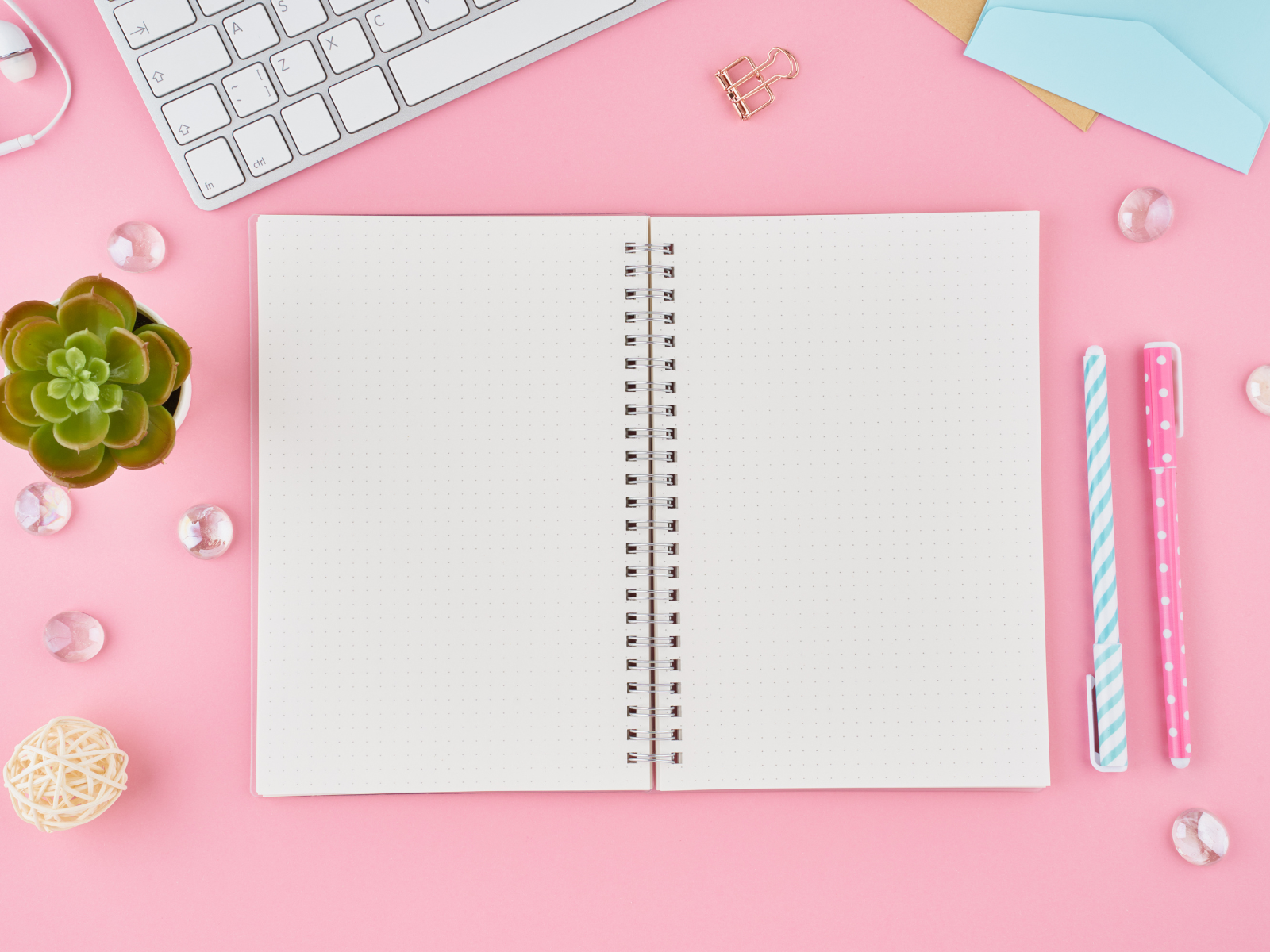
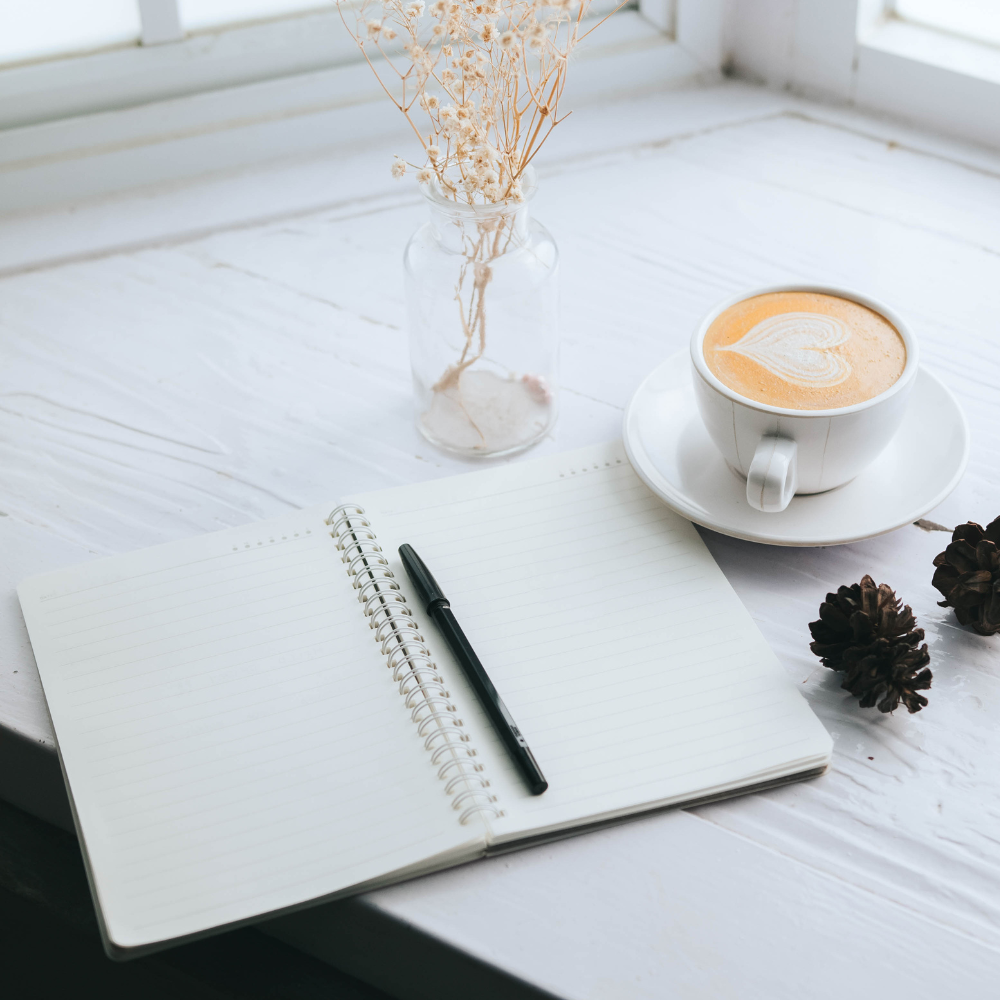
Journaling Techniques and Prompts
Sometimes the hardest part of journaling is knowing what to write about.
There are several journaling techniques to explore as a beginner.
Some of the popular journaling techniques include:
- Bullet Journaling
- Morning Pages
- Gratitude Lists
- Art Journaling
- Reflective Journaling
- Stream of Consciousness Journaling
Of course, you can always journal free-form as well.
Experiment with different techniques to find what works best for you.
Here are some prompts to get your imagination flowing:
- What are three things that made you happy today?
- What am I grateful for today?
- How do I feel right now?
- What goals do I want to achieve this month/year?
- Write about a challenge or setback and how you overcame it.
- Describe your perfect day.
Remember, these are just suggestions.
Feel free to come up with your own prompts or adapt these to suit your needs.
Bullet Journals
Bullet journaling is a creative and efficient way to organize your life, thoughts, and goals.
This method involves using symbols and different layouts to plan tasks, track habits, and maintain journal entries in one place.
This customizable system can help you stay organized and increase productivity in both your personal and professional life.
You can create your own bullet journal layout or use templates available online.
Some popular sections of a bullet journal include:
- Monthly spreads with goals and tasks
- Weekly spreads with a to-do list and habit tracker
- Daily entries with reflections and tasks for the day.
Morning Pages
Originated by author Julia Cameron, morning pages involve writing three longhand pages first thing in the morning.
This practice helps clear your mind of clutter and sets you up for a productive day, setting a positive tone for the rest of the day.
Write about anything that comes to mind, without judgment or editing.
Art of Gratitude and Gratitude Lists
Gratitude journaling is a practice where you express gratitude for the positive aspects of your life.
This simple act can shift your focus from what's lacking to what's abundant, fostering a sense of contentment and happiness.
Gratitude lists are a powerful way to cultivate a positive mindset and appreciate the little things in life.
At the end of each day, write down three things you are grateful for.
This simple practice can help shift your perspective and bring more joy into your life.
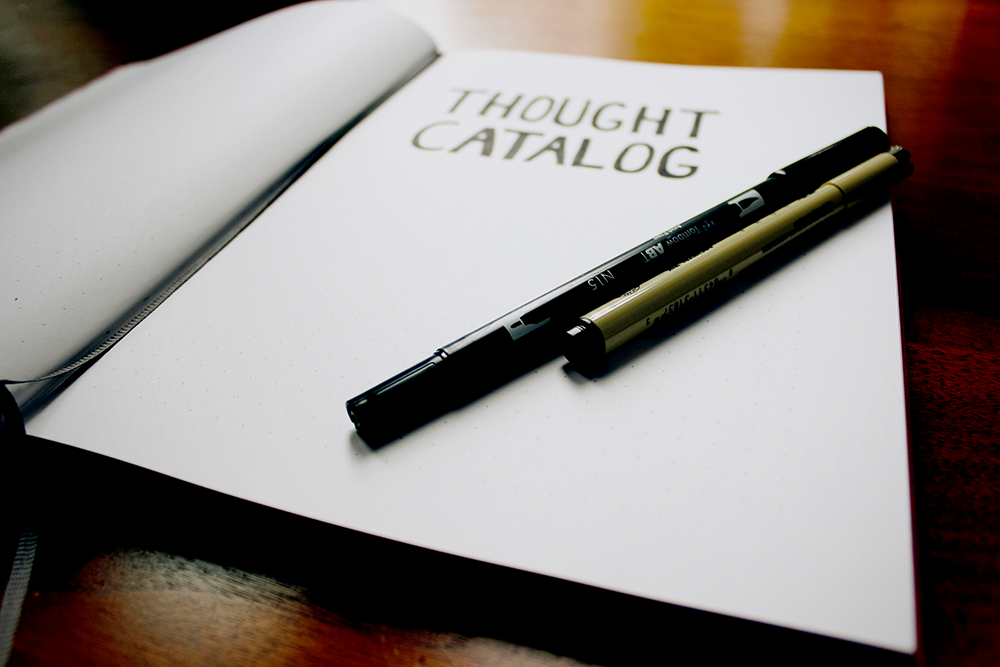
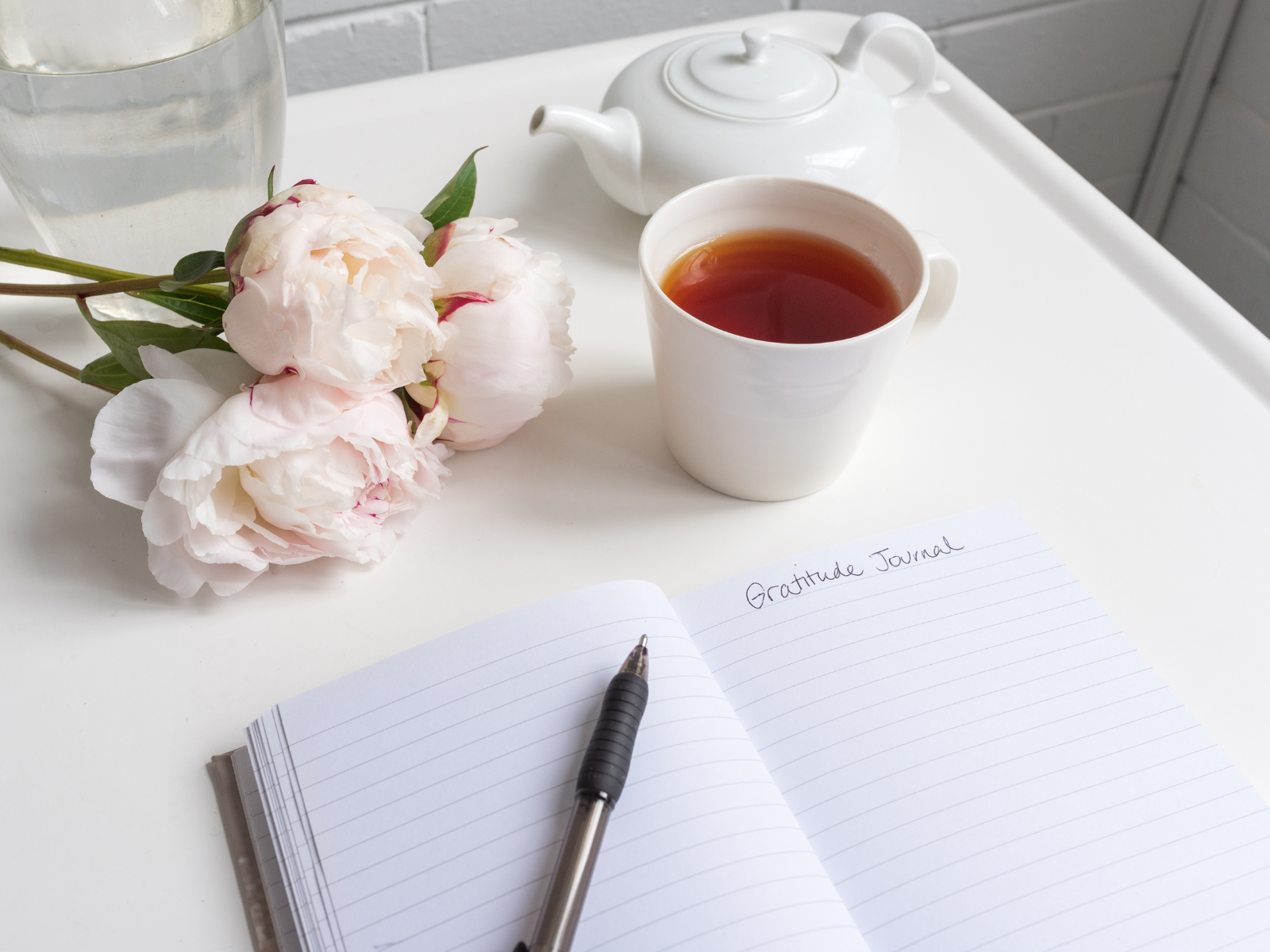
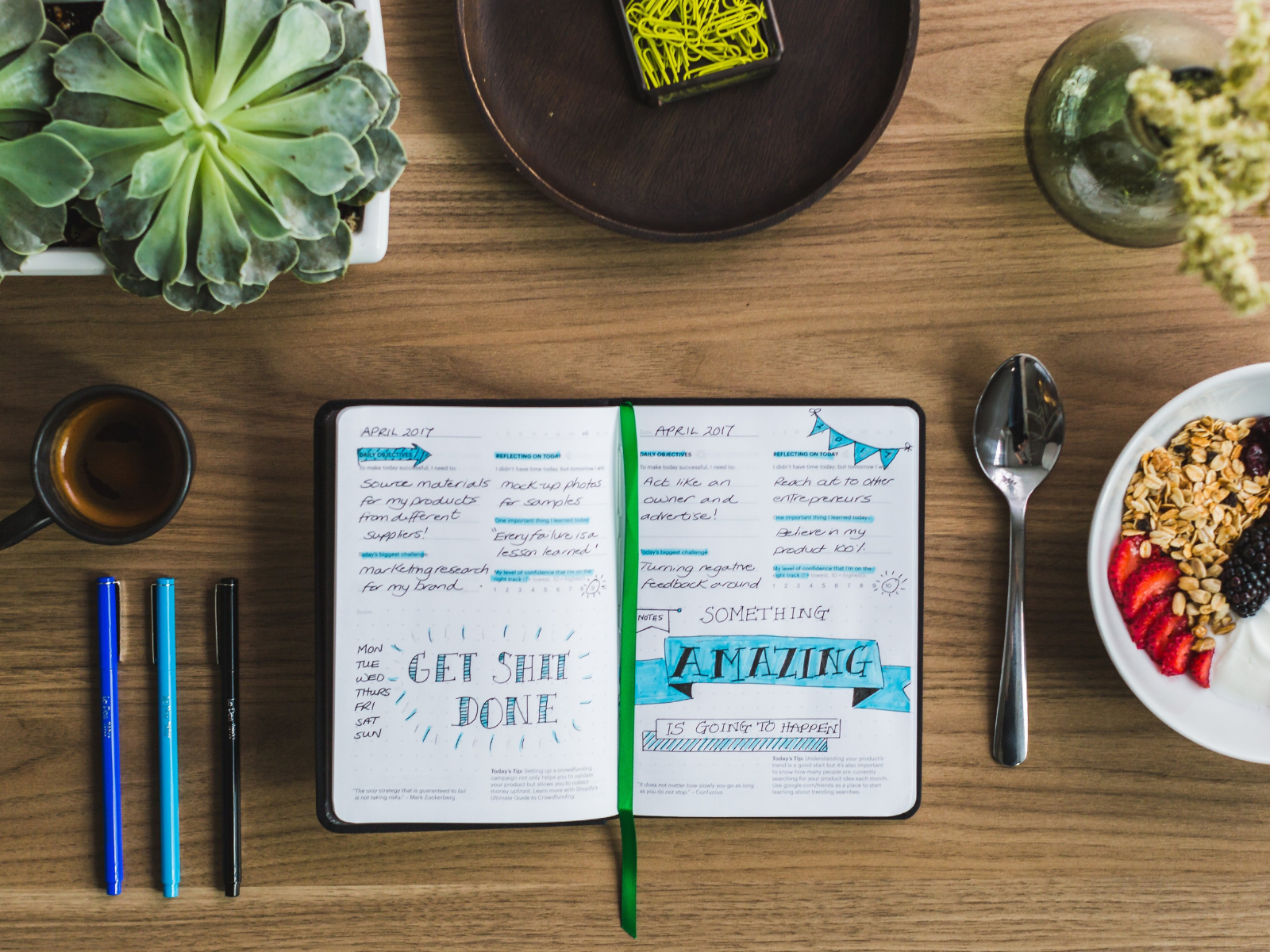
Art Journaling
For those who prefer expressing themselves through art, art journaling may be the perfect fit.
It involves using different art mediums like paint, collage, and mixed media to create visual representations of your thoughts and feelings.
The possibilities are endless with this form of journaling.
Reflective Journaling
Reflective journaling allows you to process your emotions, gain insights, and track personal growth over time.
It involves setting aside a specific time to reflect on your thoughts and experiences, whether positive or negative, and write about them.
Stream of Consciousness Writing
This technique involves writing continuously without pausing or editing for a set period.
This practice allows you to tap into your subconscious mind and discover hidden thoughts and emotions.
It can be a powerful tool for self-discovery and creative expression.
Keeping a Dream Journal
A dream journal is a place to record and interpret your dreams.
Writing down your dreams can enhance creativity, provide insights into your subconscious, and contribute to problem-solving in your everyday life.
Make sure to keep a notebook and pen by your bed, so you can write down your dreams immediately upon waking.
Incorporating Journal Prompts
Journal prompts are questions or topics that can help guide your writing.
These prompts are a powerful tool to help overcome the intimidation of a blank page and kickstart your writing flow.
They act as a starting point for your journal entry, guiding you through a focused exploration of your thoughts and feelings.
Whether you're maintaining a personal journal, gratitude journal, or bullet journal, incorporating prompts can lead to profound insights and life-changing benefits.
They serve as a catalyst for self-awareness, allowing you to delve deeper into your psyche and understand your motivations and desires.
These prompts can be as simple as "What made me smile today?" or as profound as "What are my core values?"
Using daily prompts can provide direction and depth to your journaling practice.
You can find prompts online, in books, or create your own.
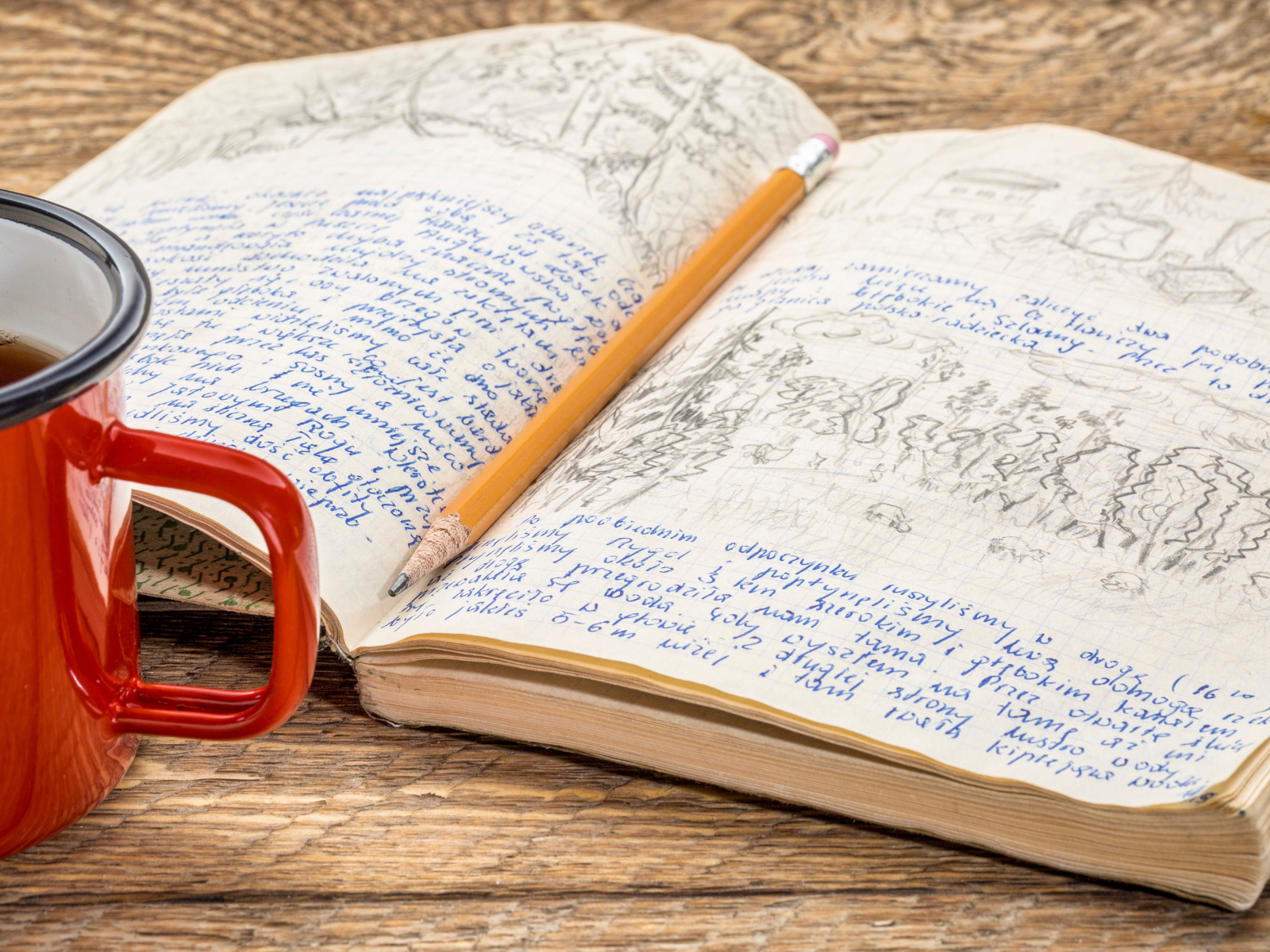


Benefits of Journaling
Journaling has numerous benefits for both your mental and physical well-being.
It's a safe space to express yourself without fear of judgment or repercussion.
It can help to:
- Reduce stress and anxiety
- Improve self-awareness
- Enhance problem-solving skills
- Track progress towards goals
- Boost creativity and self-expression
By consistently documenting your thoughts, feelings, and experiences, you can gain insights into your patterns, behaviors, and emotions.
This self-awareness can help you make positive changes in your life.
Journaling for mental health is a therapeutic tool that can help you process emotions, reduce stress, and gain self-awareness.
By putting your thoughts and feelings onto paper, you create a space for reflection and healing.
Journaling as a Tool for Mindfulness
Journaling encourages you to live in the present moment by focusing your attention on your thoughts and feelings as they arise.
This mindfulness practice can lead to greater emotional regulation and a deeper sense of peace.
Incorporating gratitude journaling and reflective writing can further enhance this experience.
Writing as a Form of Stress Relief
Journaling can be a form of stress relief, allowing you to release pent-up emotions and process challenging situations.
The act of writing can be a cathartic experience, helping to reduce anxiety and improve mood.
It can also serve as a creative outlet, helping to alleviate stress and promote relaxation.
Journaling for Self-Awareness and Clarity
Through journaling, you can gain self-awareness by exploring your inner world.
Writing helps to clarify thoughts and emotions, leading to greater understanding and decision-making.
It's also an excellent tool for identifying patterns and triggers, helping you take control of your life.
Journaling for Personal Growth
Journaling can be a catalyst for personal growth by helping you identify goals, track progress, and reflect on experiences.
It's a tool for self-discovery that encourages you to think deeply about your life and the person you want to become.
By using journaling techniques and prompts, you can gain insights into your thoughts, behaviors, and values, ultimately leading to personal growth.
The Link Between Journaling and Creativity
Journaling can unlock creativity by providing a space to explore thoughts and ideas without constraints.
It's a practice that can inspire artistic expression and lead to the discovery of new passions.
With different techniques, you can tap into your imagination and unleash your creativity.
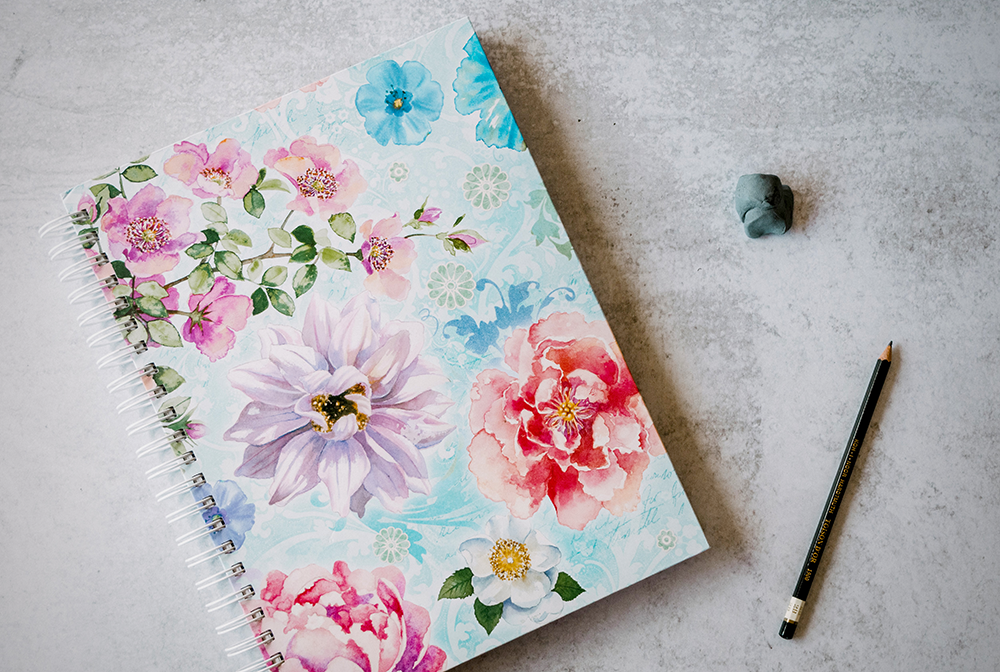
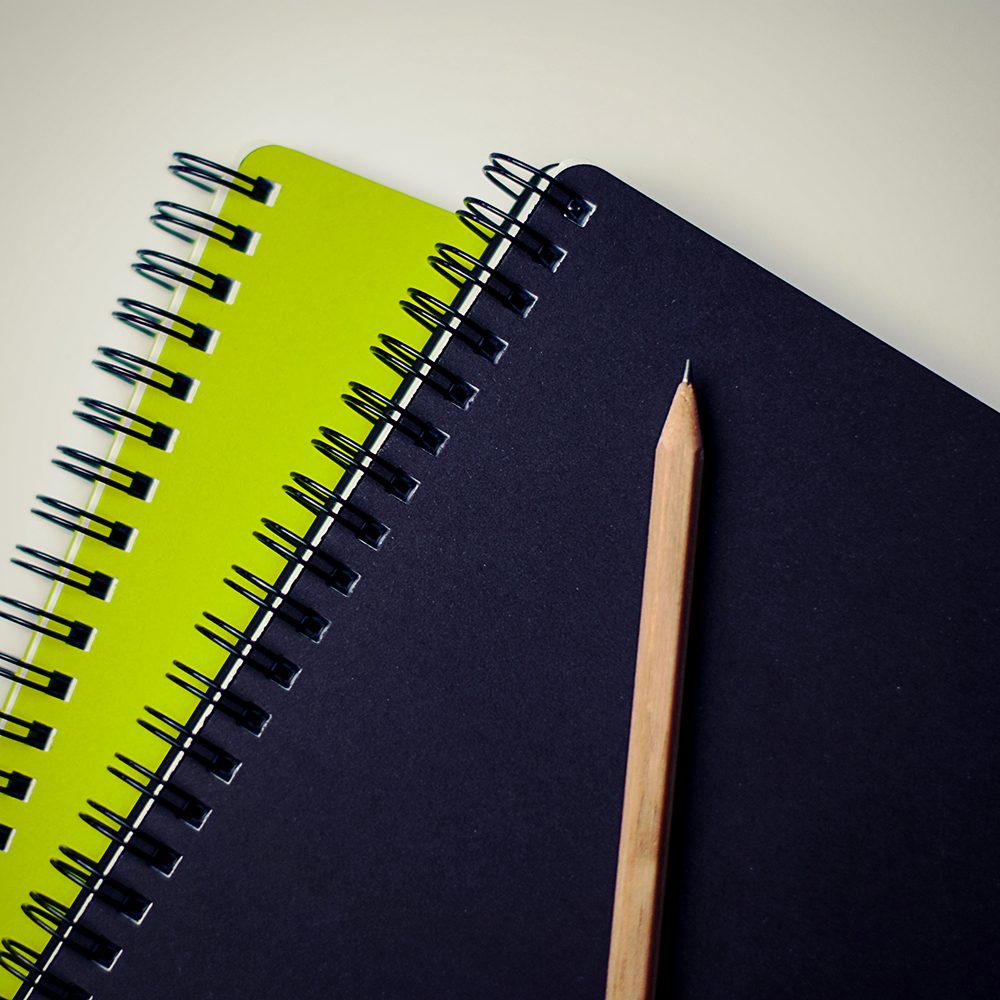
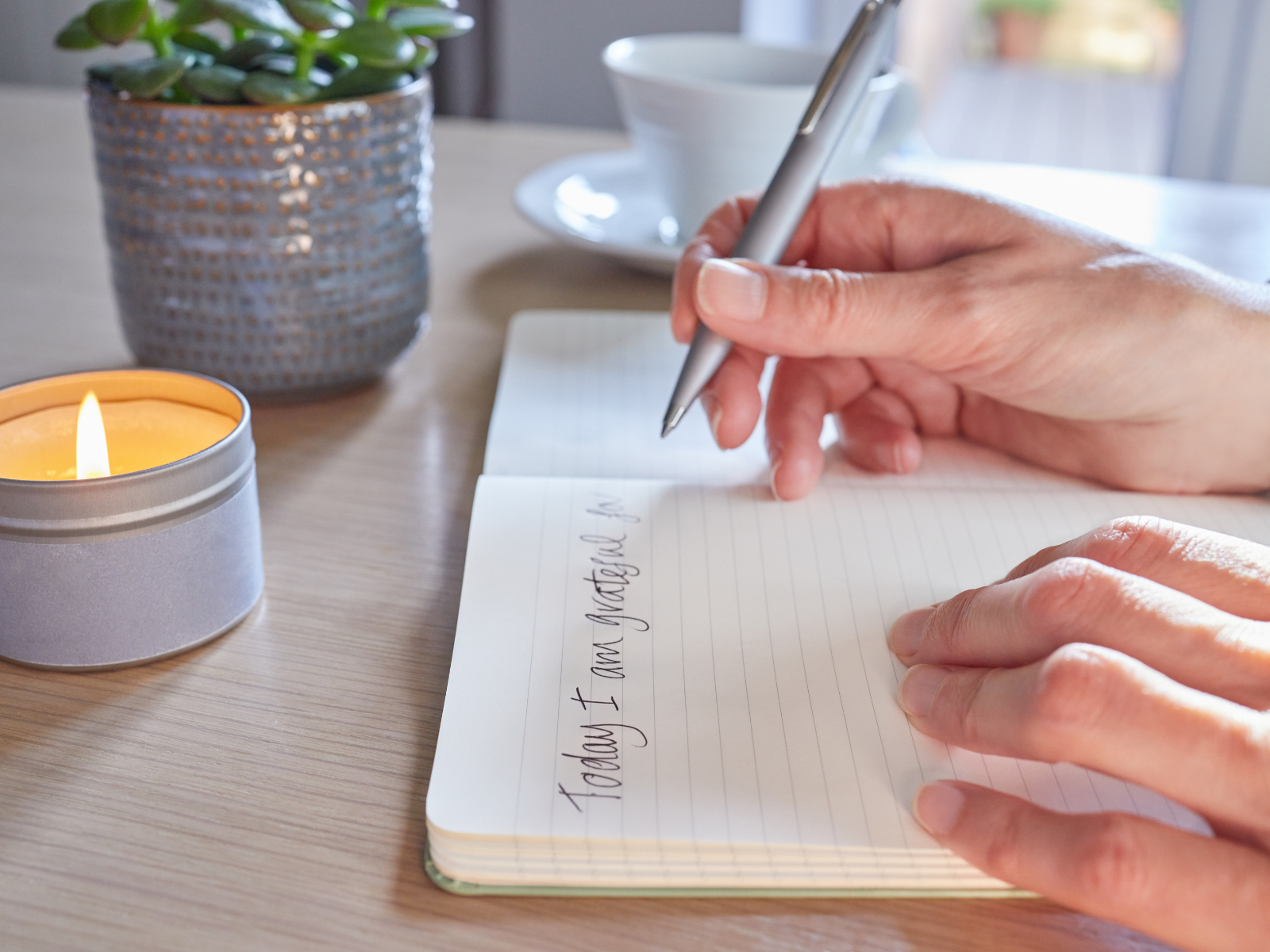
Creating a Safe Space for Expression
Your journal is a safe and private space where you can express yourself without judgment.
Write honestly and openly about your thoughts, feelings, and experiences.
This authenticity is what makes journaling such a powerful practice.
Remember, it's not about being perfect or writing beautifully; it's about showing up and allowing your thoughts to flow onto paper.
Exploring the Depths of Art Journaling
Art journaling is a vibrant and expressive form of journal writing that combines visual elements with the written word.
This creative practice allows individuals to explore their artistic side while engaging in reflective writing.
By incorporating sketches, collages, and paint into journal entries, creative journaling becomes a dynamic canvas for self-discovery and emotional expression.
It's not just about creating aesthetically pleasing pages; it's about the process of visual storytelling that can unlock new insights and release pent-up emotions.
For beginners eager to embark on this journey, starting an art journal requires little more than a blank notebook and a few art supplies.
The key is to let go of perfection and allow your creativity to flow freely.
Art journaling tips often suggest using mixed media to add texture and depth to your pages.
Whether it's a simple doodle or an elaborate illustration, each page of your art journal is a personal reflection that captures your inner world in a unique and tangible way.
Embrace this form of expressive writing and watch as your journal transforms into a colorful chronicle of your life's journey.
Embracing Self Discovery Through Journaling
Journaling is not just a method of recording daily events, but a profound tool for self discovery.
By dedicating time to reflect on personal experiences and thoughts, individuals can uncover patterns and behaviors that may have previously gone unnoticed.
This process of introspection can lead to significant insights about one's desires, fears, and core values.
As journal keepers venture deeper into their own journal entries, they often encounter life changing benefits, such as increased self-awareness and a clearer sense of direction in life.
The act of writing becomes a mirror, reflecting the innermost parts of the self that are waiting to be explored and understood.
The journey of self-discovery through journaling is a personal one, and there is no one-size-fits-all approach.
Each new journal entry is a step towards understanding oneself better. It's about asking the hard questions and being honest with the answers that emerge.
Whether it's through writing about daily occurrences or delving into the subconscious mind, journaling can help release pent up emotions, leading to a more balanced and emotionally resilient self.
By making a habit of this reflective practice, individuals can transform their journal into a treasured companion on the path to self knowledge and growth.



Journaling as a Pathway to Enhanced Self Awareness
Journaling is not just a repository for memories or daily events; it is a conduit for cultivating self awareness.
By committing to the written word, individuals can track their personal growth over time, observing how their thoughts, feelings, and actions evolve.
This ongoing record serves as a tangible measure of one's development, offering insights into personal strengths and areas for improvement.
Journaling can be particularly effective when facing life transitions or seeking to understand complex emotions, as it provides a structured means to process and articulate internal experiences.
Reflective journaling is a powerful tool for enhancing self awareness, allowing individuals to delve into their thoughts and emotions with clarity and depth.
By regularly engaging in this practice, one can begin to identify patterns in behavior and thought processes that may otherwise go unnoticed.
Reflective journaling acts as a mirror, providing a personal space for introspection and self-evaluation.
It encourages a mindful approach to daily experiences, fostering a heightened sense of self that can lead to more informed decisions and improved emotional intelligence.
Incorporating reflective journaling into your routine can be transformative.
Start by dedicating time each day to write about your experiences, reactions, and feelings.
This practice can unearth underlying motivations and contribute to a greater understanding of one's self.
As you continue to journal, you may find that your self awareness grows, allowing you to navigate life's challenges with greater ease and confidence.
Reflective journaling doesn't just capture moments in time; it facilitates a journey of discovery that can be endlessly rewarding.
To maximize the benefits of journaling for self awareness, consider setting aside a specific time each day for this practice.
Use this time to explore your inner landscape without judgment, allowing your pen to move freely across the page.
Over time, patterns will emerge, revealing the contours of your inner self.
By making journaling a consistent habit, you can build a rich tapestry of self-knowledge that empowers you to live with greater authenticity and purpose.
Journaling to Practice Gratitude and Organize Thoughts
Incorporating the practice of gratitude into one's journaling routine can have profound effects on one's outlook on life.
By taking the time to acknowledge and appreciate the good in each day, journal keepers can cultivate a positive mindset and recognize the abundance in their lives.
This simple act can shift focus from what's lacking to what's present, leading to a more fulfilling and contented existence.
The life changing benefits of gratitude journaling are well-documented, with studies showing improvements in mental well-being and even physical health.
By making gratitude a daily practice, individuals can enhance their overall happiness and satisfaction with life.
Moreover, journaling serves as an excellent tool for organizing thoughts and tasks.
A to do list, for instance, can be seamlessly integrated into one's own journal, providing a clear and structured plan for the day ahead.
This not only helps in managing time effectively but also in decluttering the mind, allowing for better focus and productivity.
The versatility of a journal means it can be adapted to suit various needs, whether it's tracking goals, brainstorming ideas, or simply jotting down reminders.
By using a journal to sort through the chaos of everyday life, individuals can create a sense of order and calm, paving the way for a more organized and intentional lifestyle.
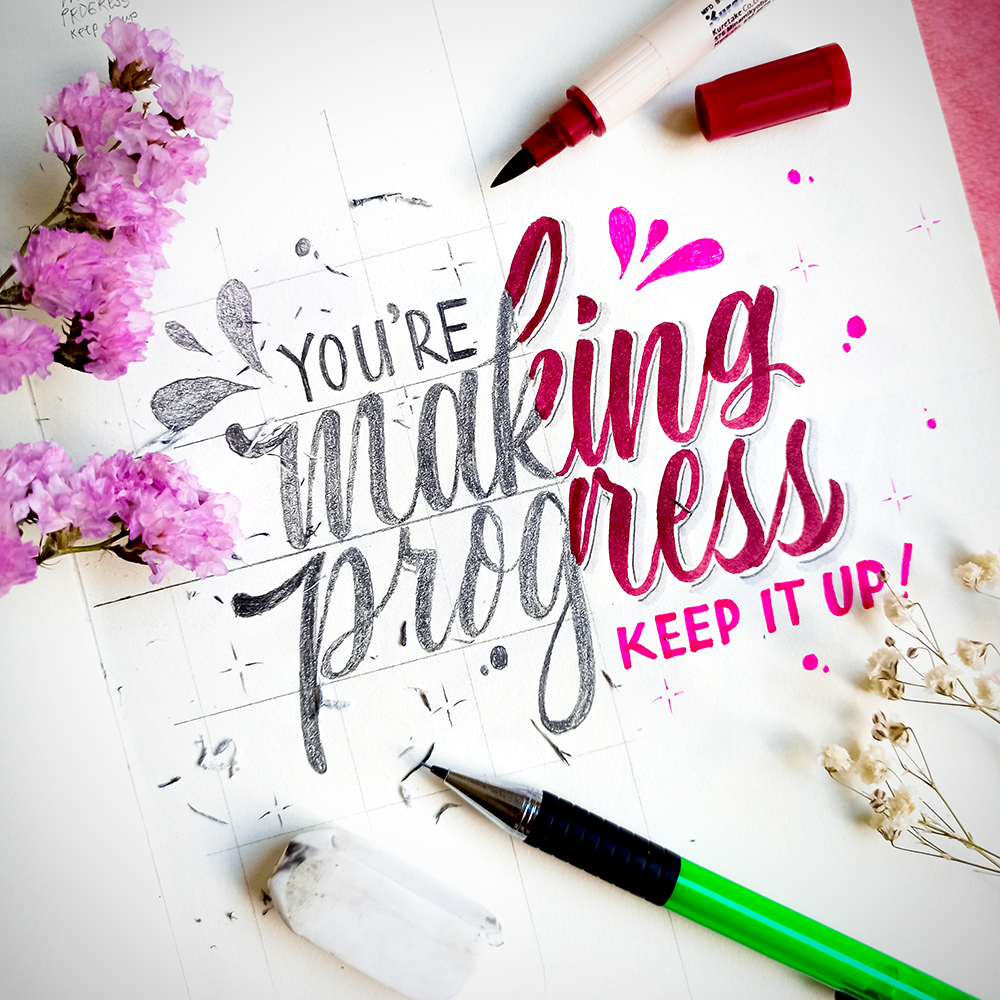
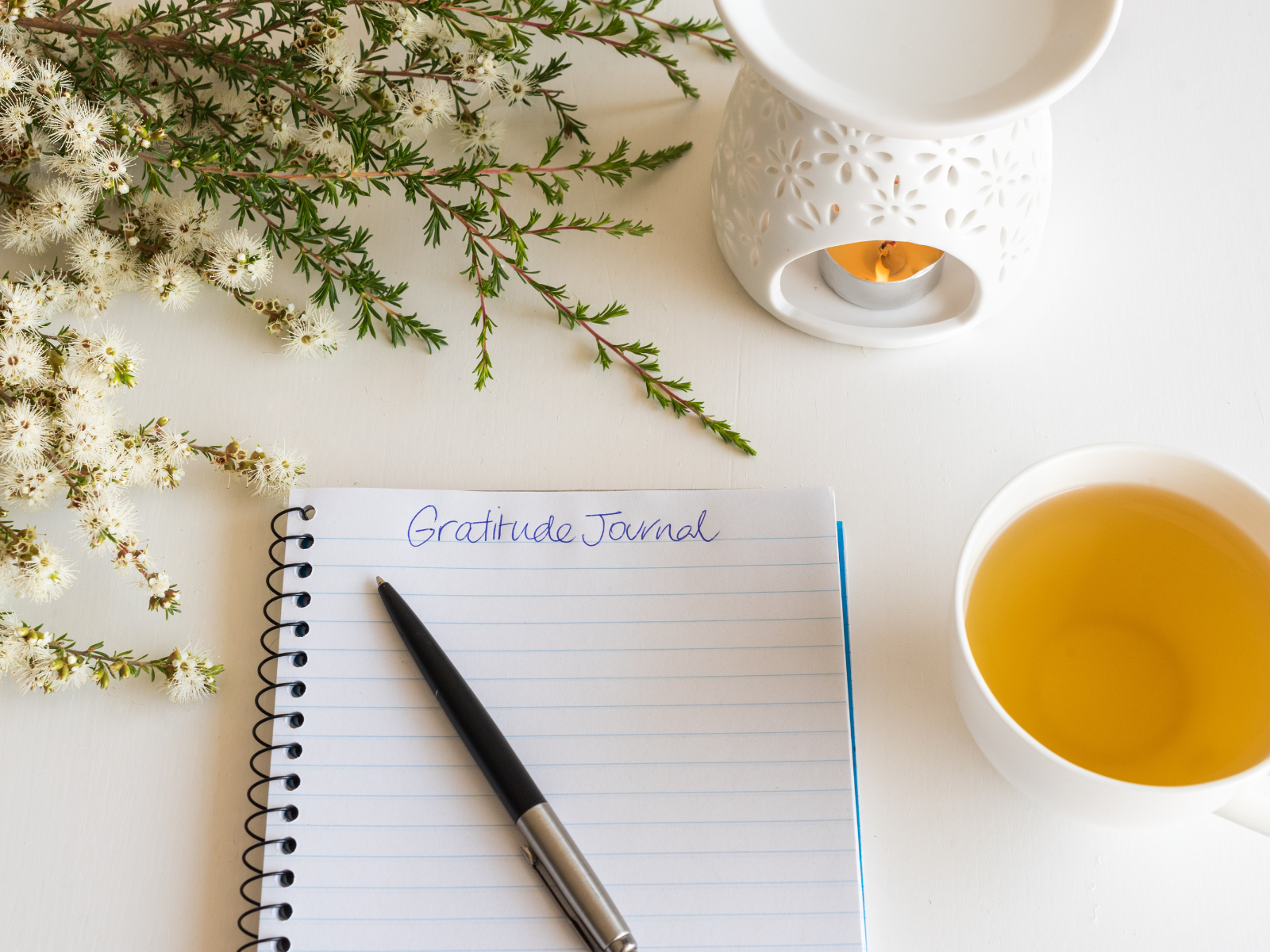
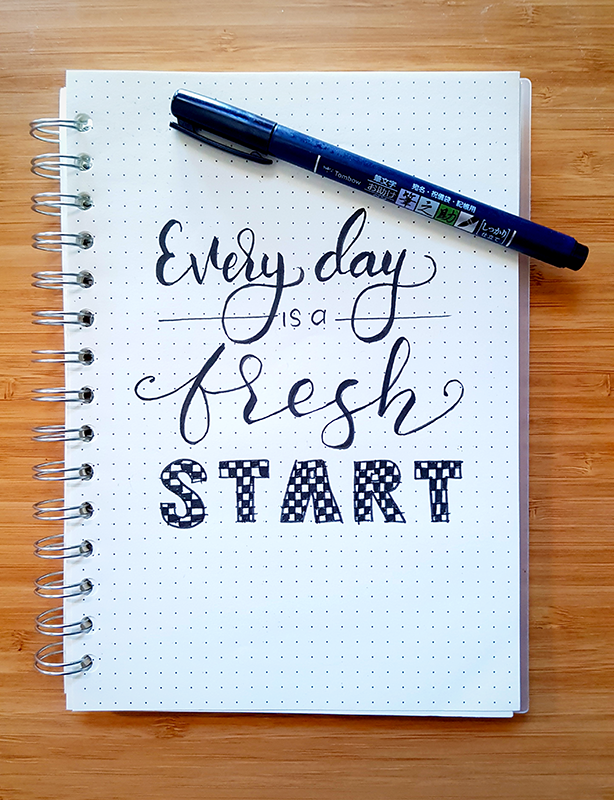
The Role of Journaling in Professional Life
Journaling isn't just for personal reflection; it can also benefit your professional life.
Keeping a journal can help you organize thoughts, brainstorm new ideas, and reflect on career goals and achievements.
Here are some ways journaling can enhance your professional life:
Goal Setting and Tracking Progress
Journaling allows you to clearly define your career goals and track your progress towards achieving them.
Through regular reflection, you can identify areas for improvement, set actionable steps, and celebrate successes along the way.
Your journal becomes a record of your growth and accomplishments, motivating you to continue striving towards your goals.
Problem Solving and Decision Making
Writing in a journal can help you work through complex problems and make difficult decisions.
The act of putting thoughts onto paper allows for deeper analysis, leading to clearer solutions.
By capturing different options and considering their pros and cons, journaling enables individuals to make more informed choices in their professional lives.


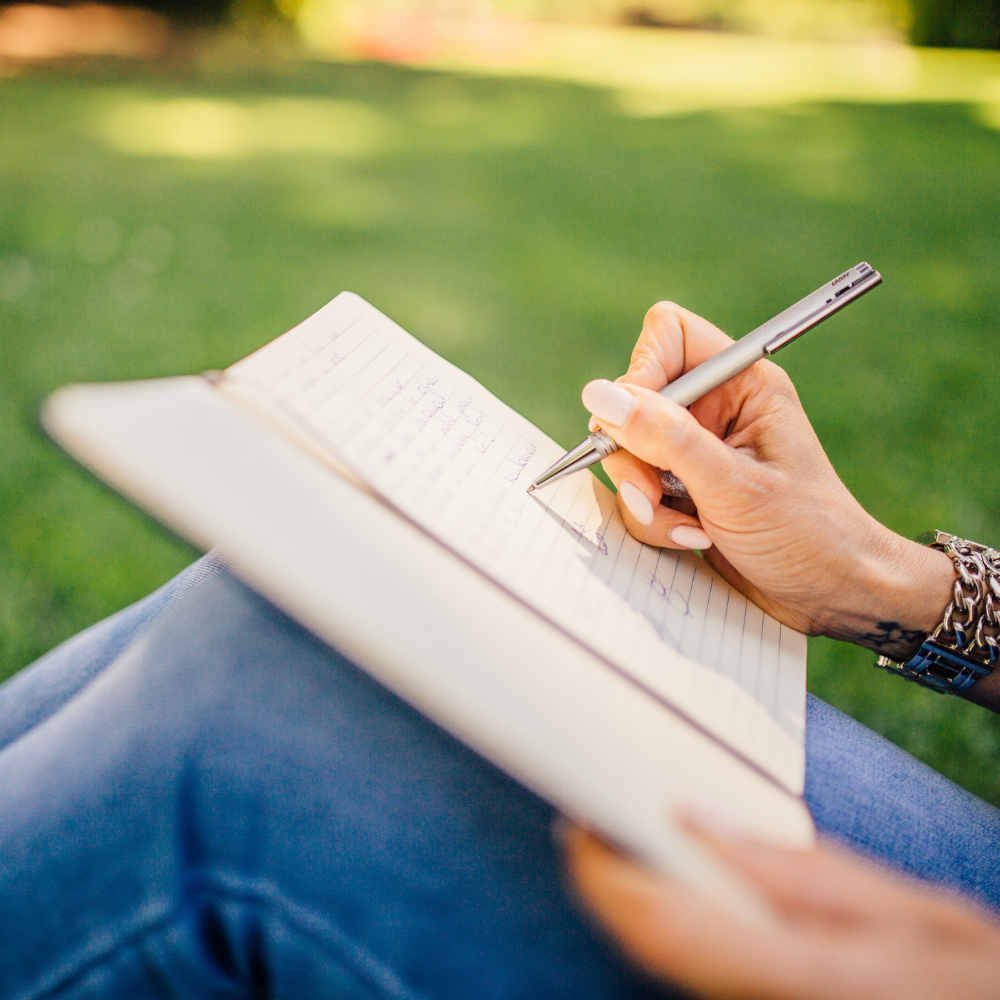
The Impact of Journaling on Relationships
Journaling can improve relationships by helping you process and communicate your feelings more effectively.
It can also be a tool for empathy, as you reflect on interactions with others and consider different perspectives.
Here are some ways journaling can enhance relationships:
Improved Communication
Journaling allows you to express your thoughts and feelings freely without fear of judgment or interruption.
This practice can help individuals communicate more openly and effectively with others, leading to healthier relationships.
Practicing Empathy
Through journaling, individuals can explore their own emotions in relation to others.
This can foster empathy and understanding, allowing individuals to see situations from different perspectives and improve their relationships.
Processing Emotions
Journaling is an excellent outlet for processing emotions related to relationships.
By writing about challenging or sensitive interactions, individuals can gain clarity and release any pent-up feelings, promoting emotional well-being and healthier connections with others.
Regardless of how you choose to journal, the key is to be consistent and open to the process.
As you continue on your journaling journey, you may find that it becomes a valuable companion in all aspects of your life, promoting personal growth, self-awareness, and fulfilling relationships.
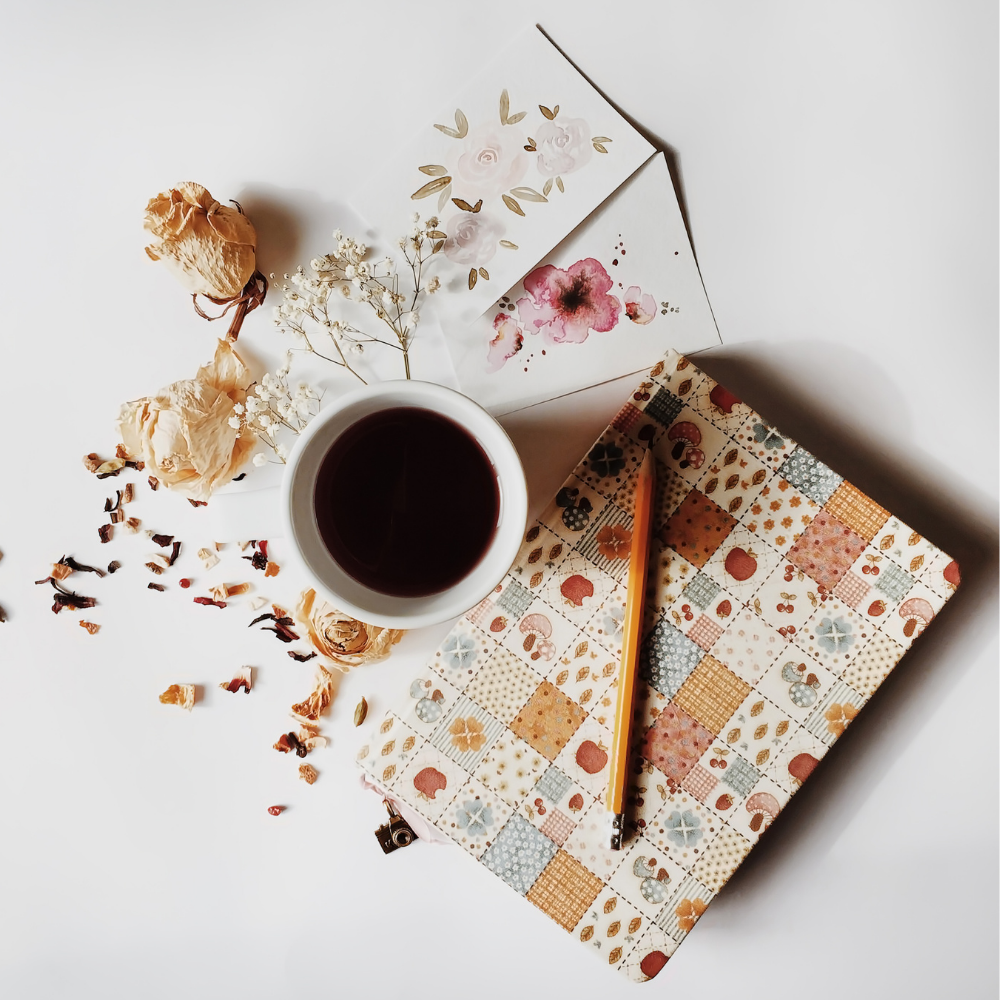

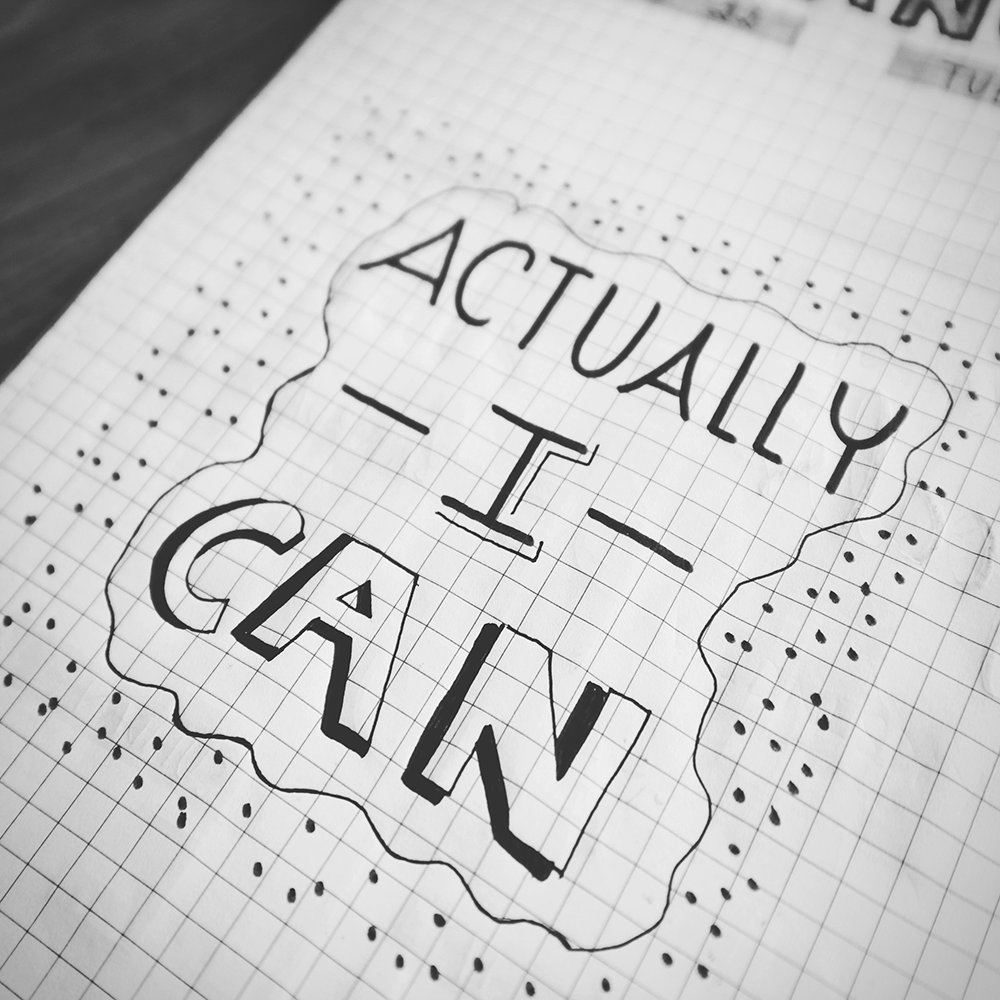
Reflecting on Life's Journey Through Journaling
Journaling allows you to document your life's journey, capturing memories, lessons learned, and personal milestones.
It's a way to look back and see how far you've come, providing a sense of accomplishment and motivation for the future.
Through journaling, you can create a legacy for yourself and future generations, offering insights into your thoughts, experiences, and values.
The Healing Power of Journaling
Journaling is not just about recording daily events; it's a tool for healing.
By writing about past traumas or challenges, individuals can gain perspective and release pent-up emotions.
The act of putting words to paper can be therapeutic, allowing for emotional release and a sense of closure.
Journaling can also serve as a form of self-care, providing a space to prioritize one's mental and emotional well-being.
How to Maintain a Daily Journaling Habit
To maintain a daily journaling habit, make it a part of your routine, like brushing your teeth or having lunch.
Find a time that works for you and stick to it, whether it's a few minutes each day or a longer session a few times a week.
Choose a comfortable, quiet space to write and keep your journal in a place that's easily accessible.
Make it personalized by using prompts, stickers, or drawings.
Most importantly, don't pressure yourself to write perfectly or consistently; the key is to show up and write honestly in the present moment.
Tips for a Successful Journaling Session
For a successful journaling session, find a quiet space where you won't be interrupted.
Use a beautiful notebook or a notes app that you enjoy, and don't worry about grammar or spelling.
The goal is to let your thoughts flow freely.
Here are some additional tips to make the most out of your journaling session:
- Start with a prompt or question to guide your writing.
- Use different techniques, such as stream-of-consciousness writing or visual mapping.
- Don't limit yourself to just words; incorporate images and other expressive elements into your entries.
- Allow yourself to write about anything that comes to mind, even if it seems insignificant.
- Write without judgment or censorship, and be open to exploring uncomfortable emotions.
- Take breaks when needed, and don't feel pressured to write every day.
- Re-read your old entries from time to time to track progress and reflect on personal growth.
By following these tips, you can make journaling a meaningful and fulfilling practice in your life.
To start journaling today, all you need is a notebook or digital device and a willingness to begin.
Choose a quiet moment, pick up your pen or open your app, and start writing.
Remember, the journey of a thousand miles begins with a single step.


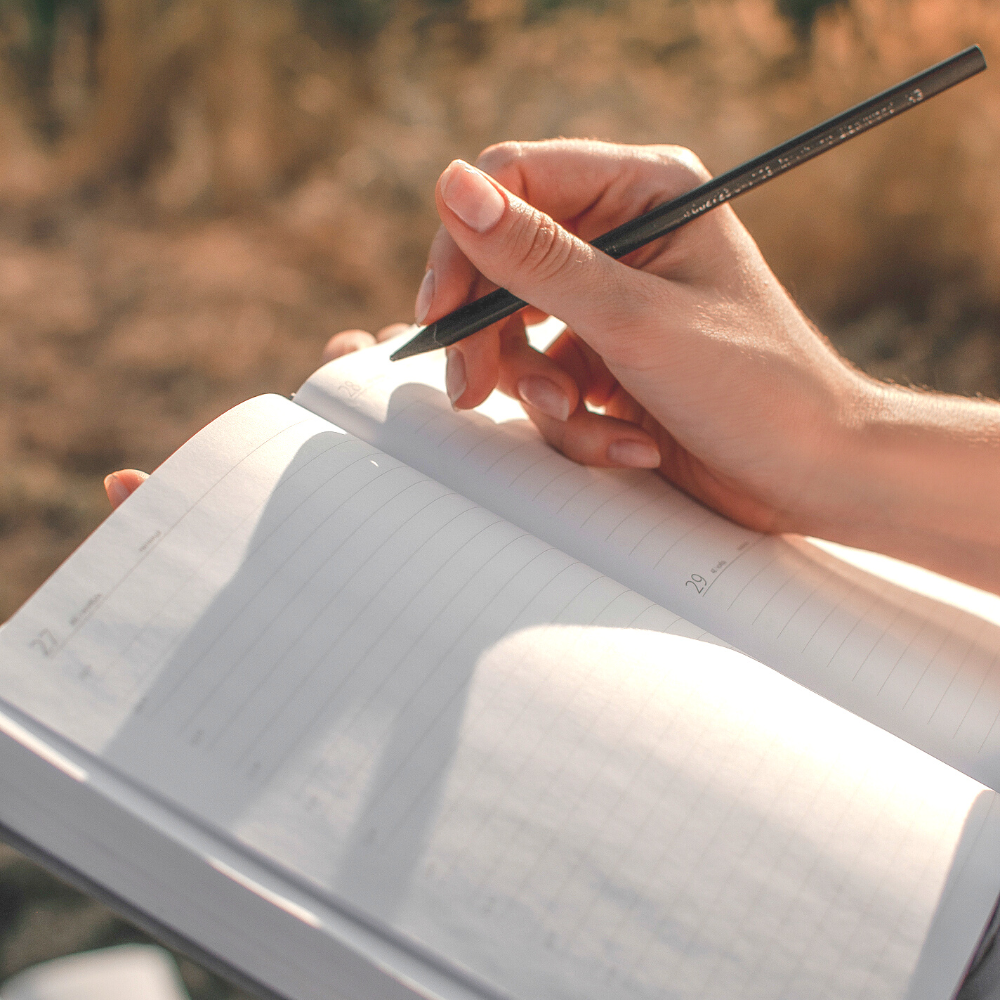
Power of Journaling for Discovery and Growth
Journaling for beginners can seem daunting, but with the right approach, it can become a fulfilling and life-changing habit; it's a great way to express yourself and let your creativity flow.
It's also a powerful tool for self discovery, personal growth, and overall well-being.
By regularly engaging in reflective writing, individuals can deepen their understanding of themselves, improve their relationships, and cultivate a positive mindset.
Incorporating the journaling process into daily life not only allows for better organization and goal-setting, but it also serves as a lasting record of personal growth and life's journey.
Whether it's for personal growth or creative expression, there are no rules when it comes to journaling—just let your thoughts and emotions guide you through the process.
With patience and consistency, journaling can become a powerful tool for self-discovery, improved relationships, and personal fulfillment.
By starting with a simple notebook, using prompts to inspire you, and trying creative techniques like art journals or sketchbooks, you can discover a new love for journaling.
Remember, consistency is key and journaling doesn't have to be perfect; it just needs to be authentic!
So, why wait to embark on a journey of self-discovery and transformation?
Start your journaling journey today and see where it takes you!
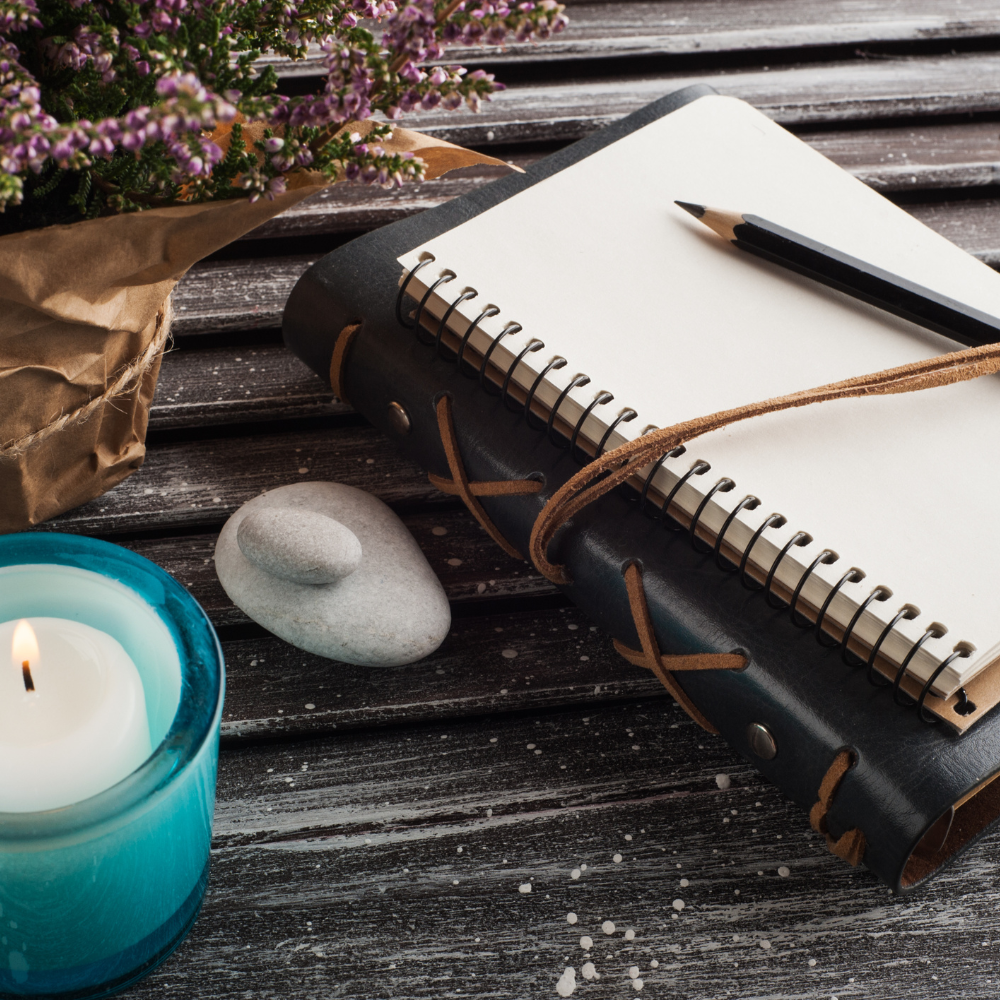
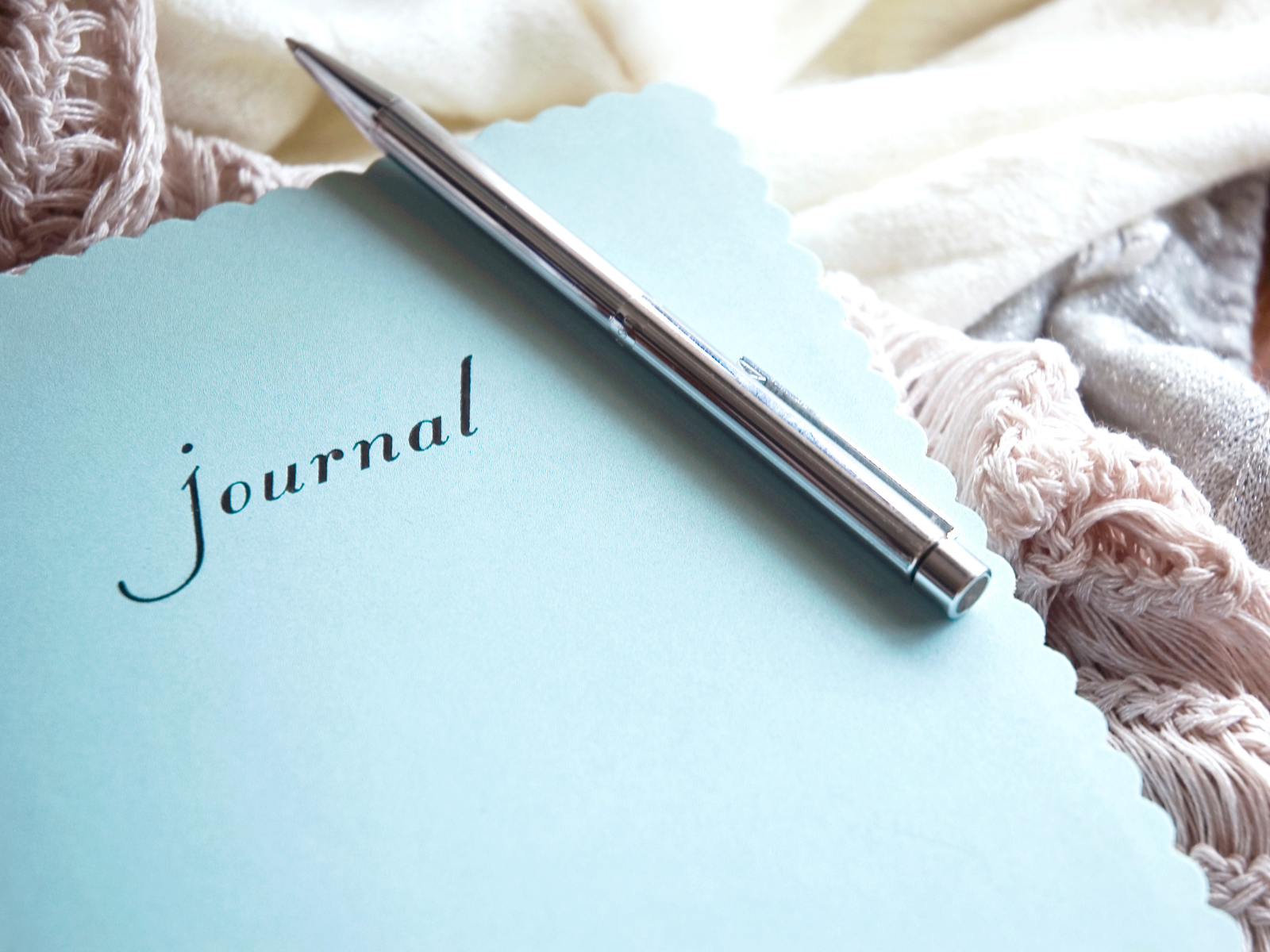

Eager to start journaling? Check out Nae's Laugh's video!
Want even more content about creativity and art?
Be sure to check out all of our creative chronicles!
Eager to learn more about journals and sketchbooks?
Check out some of our other articles:
-What is the difference between a journal and an art journal?
